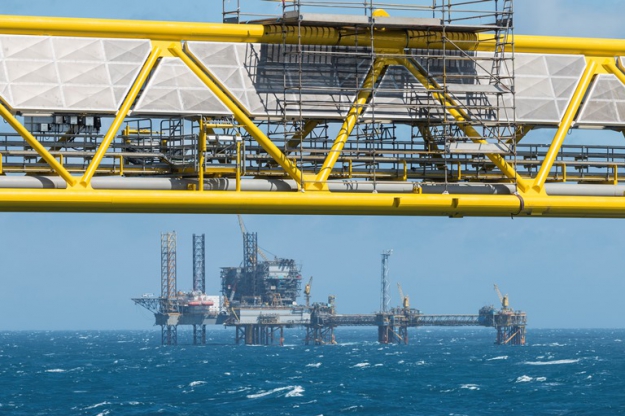Danes Agree Tyra Gas Hub Investment Package
Maersk Oil said March 22, on behalf of the Danish Underground Consortium (DUC), that it has reached an agreement with the Danish government to facilitate future oil and gas investments in the Danish North Sea and protect industry jobs in Denmark.
It provides terms enabling DUC partners to progress a full redevelopment plan for the offshore Tyra facilities towards a decision to invest in the project by end-2017.
The Tyra offshore hub handles 90% of Denmark’s roughly 4.5bn m³/yr gas production. In April 2016 Maersk had warned that, without an investment agreement, it would have to decommission the Tyra platforms and halt their production from October 2018 as they had been undermined by subsidence.
The agreement with the Danish government is subject to parliamentary approval.
However the finance ministry said that the government, together with the Social Democrats, the Danish People's Party, the Socialist People's Party and Social Liberals, had entered into a fully-funded agreement ensuring future development in the North Sea.
Fiscal aspects of the deal are understood that the tax allowance on oil and gas production will be increased over the six years from 5% to 6.5%, that there will be an increase from 15% to 20% in the allowance for depreciation that oil companies can make against the hydrocarbons tax they pay, but with a clawback by the state if oil prices rise above $75/b. The finance ministry indicated that, in its full lifetime, the package would enable an extra 129mn barrels of oil equivalent to be produced.

View of the Tyra East platform (Photo credit: Maersk Oil)
A full redevelopment is now expected to restore the current infrastructure, including the gas processing hub and five surrounding satellite fields that include Harald and Valdemar and thereby ensure continued production from the Tyra field, said Maersk, adding that the new asset could enable future production of oil and gas volumes from the DUC license area as well as third party projects.
Maersk Oil chief operating officer Martin Rune Pedersen said: “We will now issue tenders and progress engineering work towards detailed plans in preparation of a final investment decision by end 2017.”
Gretchen Watkins, Maersk Oil CEO, said the March 22 announcement “reaffirms the commitment Maersk Oil has made to invest in the future of North Sea oil and gas and, in particular, in our heartland in Denmark” and said it would “support value creation for decades to come.”
Maersk Oil has issued a notice to the gas markets on behalf of all DUC partners outlining that, pending a final investment decision, production from Tyra is now expected to shut in December 2019 and restart in March 2022. More information on the revised schedule for a full redevelopment of Tyra will be made available on final investment decision later this year.
Tyra field is operated by Maersk Oil on behalf of the DUC consortium of Maersk 31.2%, Shell 36.8%, the Danish state North Sea Fund (Nordsofonden) 20% and Chevron 12%.
Nordsofonden said the agreement will enable the reconstruction of the Tyra Field installations and thus continued production from Tyra and the surrounding fields, Harald and Lulita, Svend Valdemar, Roar and Tyra Southeast, guaranteeing a significant part of the infrastructure in the North Sea.
Birgitta Jacobsen, Nordsofonden’s director, said that parties to the agreement recognised that, without such an agreement, the necessary investments would not be made: "We expect that the enhanced framework will mean more investments in new projects that can increase the production of oil and gas. This applies to projects in all licenses, both for existing fields, new oil and gas discoveries underestimation. ... A reconstruction of Tyra will mean that we can recover substantial amounts of oil and gas that would otherwise be left in the ground. And it provides more revenue to the Treasury."
Denmark is undergoing a transformation that will make energy supply independent of fossil fuels by 2050, but Nordsofonden said that projections show that there will be a continued need for Danish oil and gas for many years yet.
Mark Smedley



